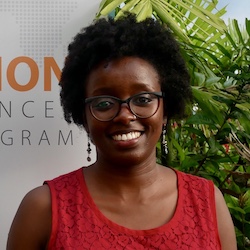Bio
Noosim Naimasiah is a member of local and Pan-African social movements and libraries that use political education, community organizing and self-reliance to organize for freedom politically based on Ujamaa, Ecofeminism and Pan-Africanism. Her academic work currently focuses on the political economy of sand within pastoralist communities.

